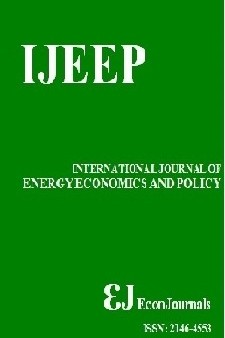Strategic Alliance in Energy Sector & Implications for Economic Growth and Technical Efficiency: The Case of Petrobras and Galp
Strategic Alliance in Energy Sector & Implications for Economic Growth and Technical Efficiency: The Case of Petrobras and Galp
- Başlangıç: 2011
- Yayıncı: İlhan ÖZTÜRK
Economical Considerations on CCS System for Geological Uncertainty and Injection Failure
Haruhiro SUZUKİ, Amin YOUSEFİ-SAHZABİ, Yuichi SUGAİ, Hossein YOUSEFİ, Kyuro SASAKİ
Energy Integration in European Power Sector
Wadim STRİELKOWSKİ, Michal MİRVALD, Michael PEDERSEN
Economic Evaluation of Climate Protection Measures in Germany
Christian LUTZ, Ulrike LEHR, Philip ULRİCH
Emmanuel ANORUO, William R. DİPİETRO
Atef Saad ALSHEHRY, Mounir BELLOUMİ
Raghid FARHAT, Nesreen K. GHADDAR, Kamel GHALİ
Salami Dada KAREEM, David Mautin OKE, Daskareem Vera ENOHO, Oladipo Kolapo SAKİRU, Babajide David ADESİNA
Ljerka CEROVİĆ, Dario MARADİN, Saša ČEGAR
Some Evidence on the Asymmetry between Gasoline and Crude Oil Prices in Selected Countries
